The Origin of Cowboy Slang
Slang is like a secret code, only cooler. In the Wild West, cowboys had their own special way of talking. It wasn't just about sounding tough; cowboy slang was as practical as a multi-tool. Imagine you're out there on the trail, surrounded by big skies and bigger cows, and you need a word that's quick and easy to say. That's where slang came in handy. Cowboys were a diverse bunch, pulling together influences from native languages, Spanish, and the melting pot of American cultures.
The cowboys used slang to talk about everything under the sun, from their trusty steeds to their epic adventures. It was a language of shorthand, built from the need to share stories around an evening fire, to coordinate on cattle drives, and even to one-up each other with tales of bravery. Think of cowboy slang as a verbal Swiss Army knife—it could be funny, precise, or downright poetic when the mood struck.
The terms they used have stuck around longer than dusty old boots. You might hear folks today borrowing words from the past, a testament to the staying power of the cowboys' linguistic legacy. Their vivid expressions weren't just functional but colorful, adding zest to their lives. That's why understanding cowboy slang gives us a sneak peek into their world and offers a richer sense of what life on the range was really like.
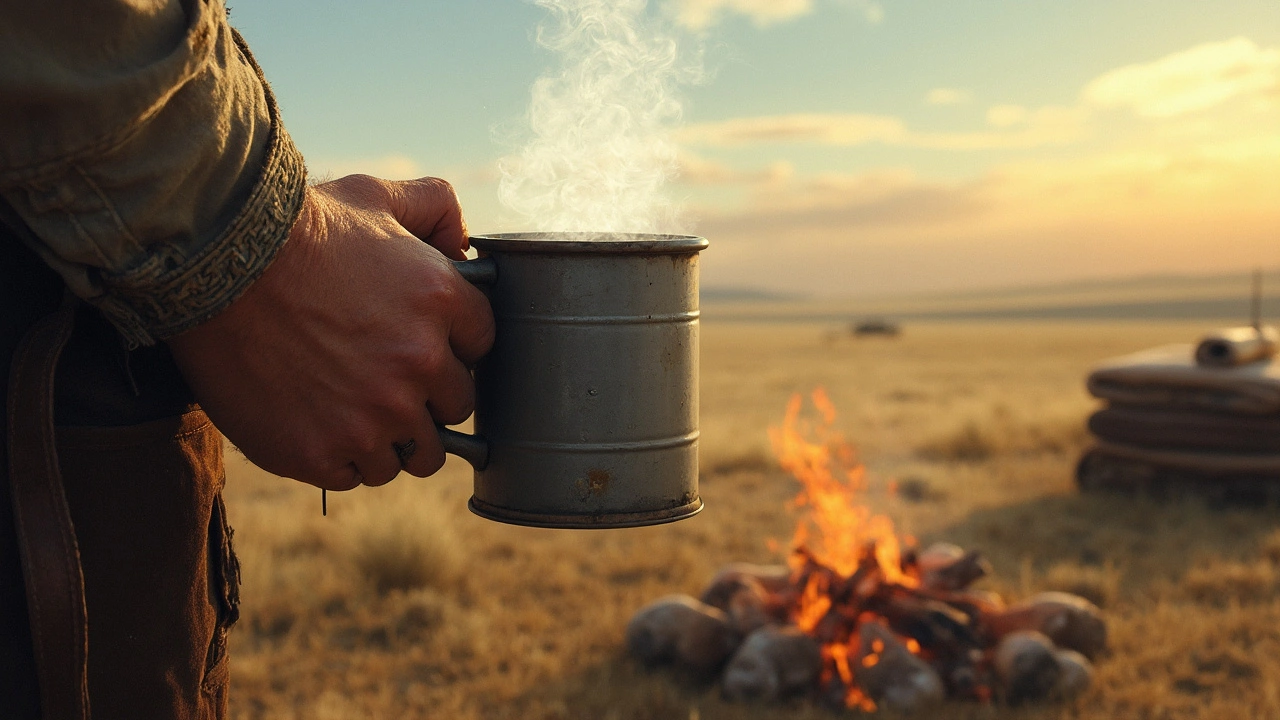
What Did Cowboys Call Beer?
Now, if you were a cowboy in need of a cold one after a long day on the trail, you'd be in for some creative wordplay. Cowboys had a knack for giving new names to everyday things, and beer was no exception. The term they most often used was "suds," which might not surprise anyone who's ever opened a frothy brew. It's an homage to the bubbly nature of beer, akin to the suds from soap.
But why stick to just one name? Cowboys weren't known for being dull, and the language they used for beer reflected that. Besides "suds," beer might also be called a "cold one" or simply "lager," depending on the cowboy's mood or the type of beer on hand, though 'lager' referred more specifically to certain types of brews. While 'suds' was the favorite, there was no shortage of slang terms in their vocabulary; sometimes, local flavors and accents spiced things up even more.
Turning back the pages of history books, you find that cowboys didn't just drink beer to quench their thirst. They saw it as a social glue, something that brought people together in saloons where epic showdowns shared the floor with casual banter. Those suds set the scene for connections and camaraderie. A cowboy knew that a cold beer was more than just a beverage—it was something to look forward to at the end of a day filled with dust and hard work. And the beauty of it is, "suds" has stuck. You might find yourself using it next time you order a brew without even thinking about its Wild West roots!
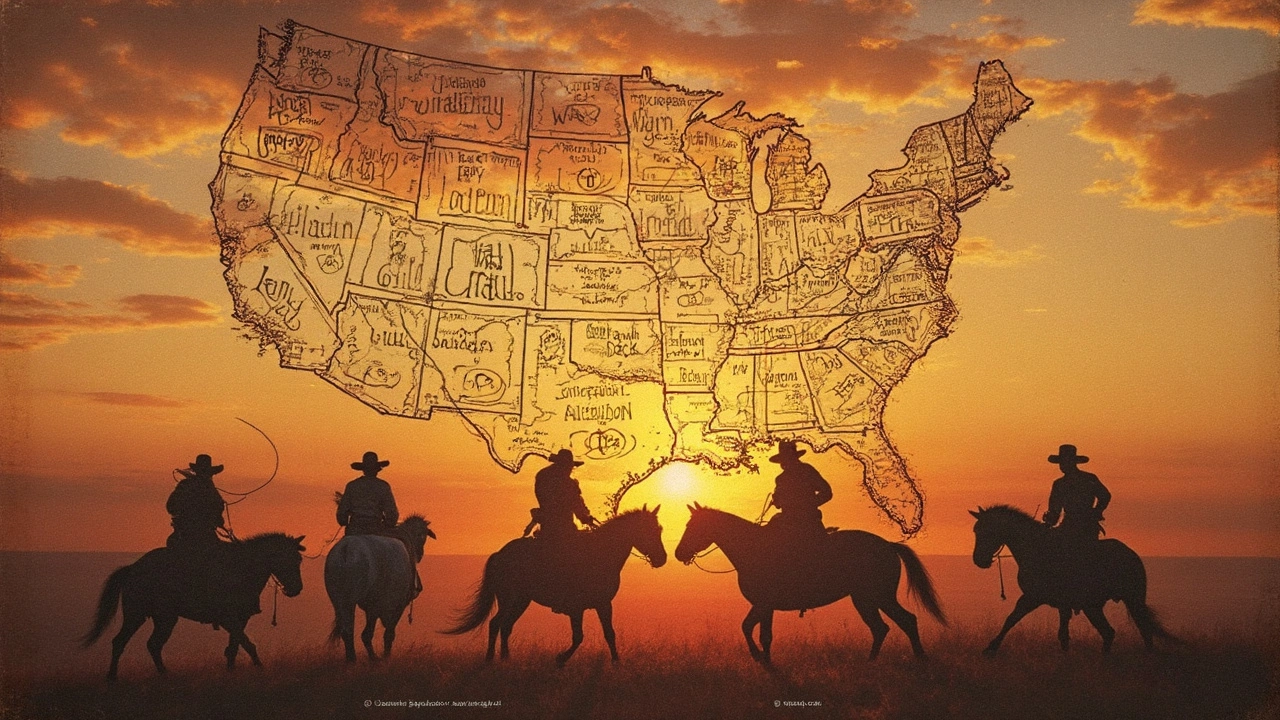
The Impact and Legacy of Cowboy Slang
Cowboy slang left a legacy that's still alive and kicking. Even if you've never set foot in the Wild West, you've probably used terms like "you bet" or "hit the hay." Cowboy language was the original informal text-speak, creating links between people that stretched wider than the plains themselves.
From Hollywood movies to country music, cowboy slang ripples across various forms of modern culture. Ever heard a Texan drawl in a song or a movie? You’re listening to echoes of that cowboy charisma. The words these fearless riders left behind paint a rich tableau, keeping their spirit alive in a world that's moved from horses to horsepower.
Cowboy slang wasn’t just about giving new names to the old staples; it was a way of life, a capturing of spirit with language. It’s not just antiquated vocabulary, it’s a timestamp of the unique culture of the American frontier era. If you've ever felt the urge to test drive this jargon, maybe you think of "suds" next time you raise a glass. It might just feel like you're sharing a toast with the cow folk of yesteryear, connecting the past with the present one swig at a time.

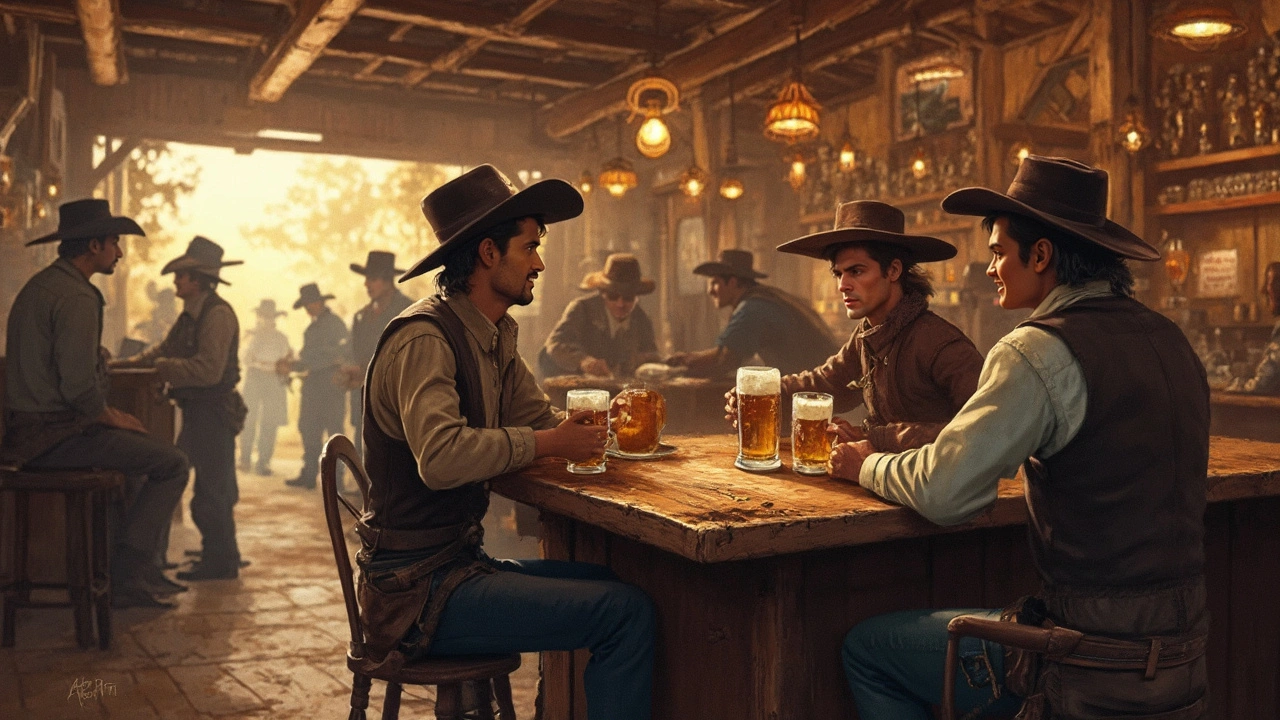
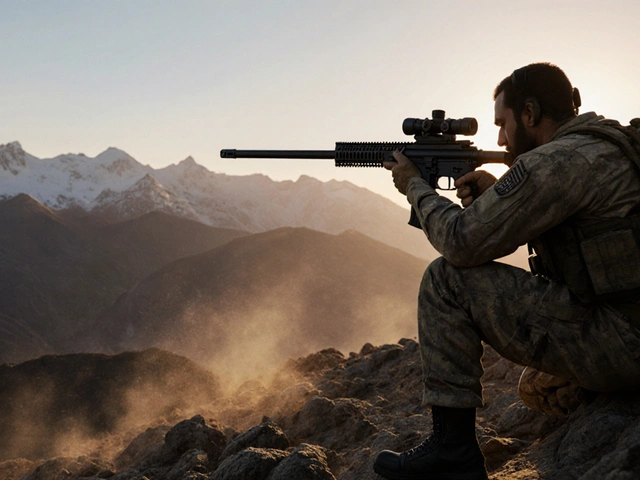

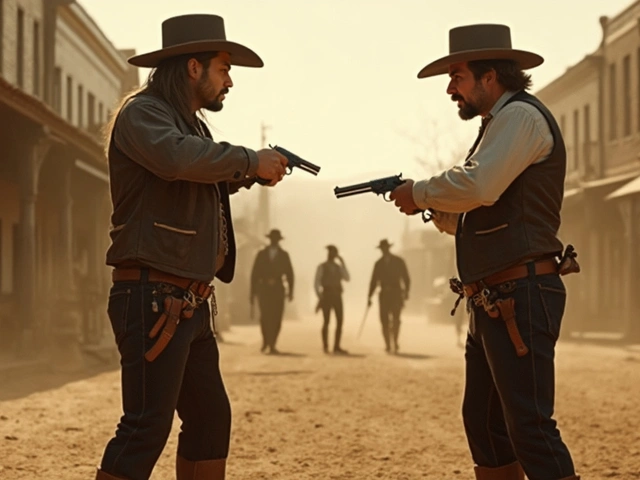
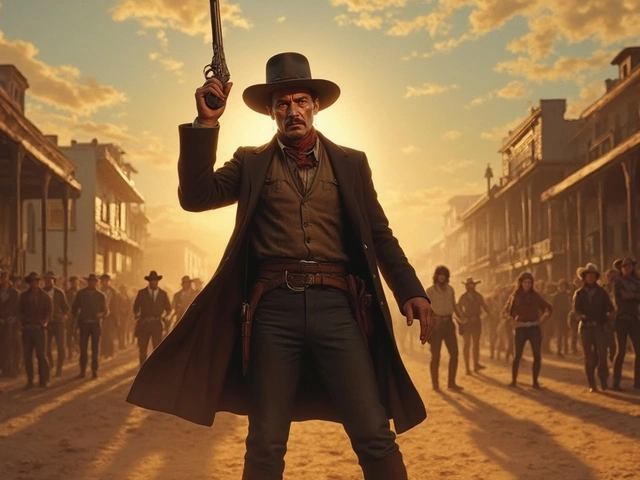
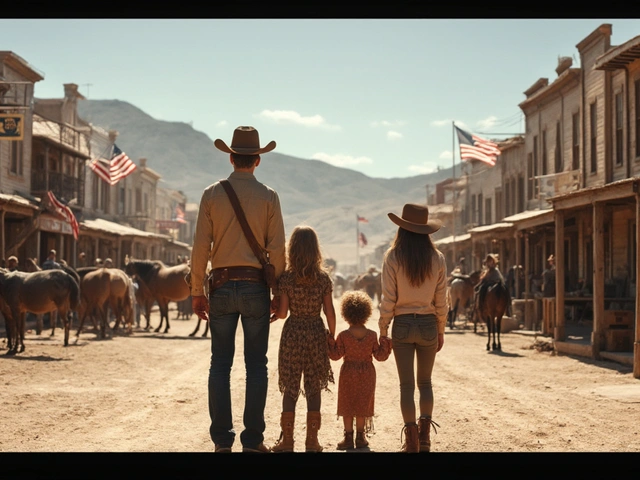
sumraa hussain
July 17, 2025 AT 23:07